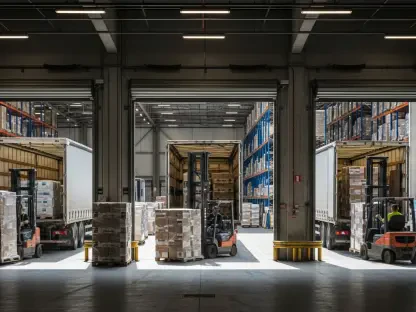The freight trucking industry has been mired in a persistent recession since 2022, driven by declining demand, elevated interest rates, and inflationary pressures, which have a multitude of companies navigating tough financial waters. These harsh conditions have compelled numerous logistics firms to either seek Chapter 11 or Chapter 7 bankruptcy protection, reflecting the severity of the downturn.
Notable Bankruptcies in the Trucking Sector
Among the companies facing dire financial straits is Fastline Cargo, a Cinnaminson, N.J.-based logistics firm that filed for Chapter 11 bankruptcy in July 2023 with the aim of reorganizing its operations to stay afloat. Similarly, DRF Logistics, located in Austin, Texas, filed for Chapter 11 in August 2023, choosing to wind down and liquidate after enduring consistent annual losses since 2017. These filings underscore the severe impact that the economic downturn has on smaller and larger companies alike.
Pride Group Holdings, a major player in the trucking space, highlights the widespread difficulties plaguing the sector. Based in Mississauga, Ontario, Pride Group sought protection under the Companies’ Creditors Arrangement Act in Canada in March 2024 and later filed for Chapter 15 in the United States. The company’s financial troubles, which date back to the COVID-19 pandemic, have been intensified by decreased demand, rising diesel prices, increased interest rates, and an oversupply of trucks and drivers.
Challenges in Restructuring Efforts
Despite operating an extensive fleet and employing a significant number of workers, Pride Group’s restructuring plans hit a snag, largely due to a lack of stakeholder support. An offer of $56.1 million by the Sulakhan Johal family to purchase the company was rejected, leaving Pride Group in further financial disarray. In response, the company sought an additional $50 million in debtor-in-possession financing to manage an orderly wind-down of its operations.
The wave of bankruptcies in the trucking sector mirrors the broader challenges facing various industries, as companies wrestle with reduced demand and rising operating costs. This situation highlights the broader economic difficulties triggered by evolving market dynamics, impacting not only logistics firms but other sectors as well.
A Wider Economic Impact
The freight trucking industry has faced a prolonged recession since 2022, primarily due to decreasing demand, high interest rates, and inflation. These factors have put many logistics companies in challenging financial situations. The downturn has been so severe that a significant number of these businesses have been forced to seek bankruptcy protection, opting for either Chapter 11 or Chapter 7. This industrial slump has led to stark changes across the trucking sector, impacting fleet sizes, employment rates, and overall business strategies. Many companies have had to downsize their operations or restructure their debts in an attempt to stay afloat. Drivers have also felt the pinch, experiencing reduced hours and job uncertainty. In this highly competitive environment, only the most adaptable and financially sound companies manage to survive. Industry experts believe that recovery hinges on economic stabilization, particularly a balance between interest rates and inflation, as well as an uptick in consumer demand. Until then, the industry will continue to navigate through these turbulent times.









